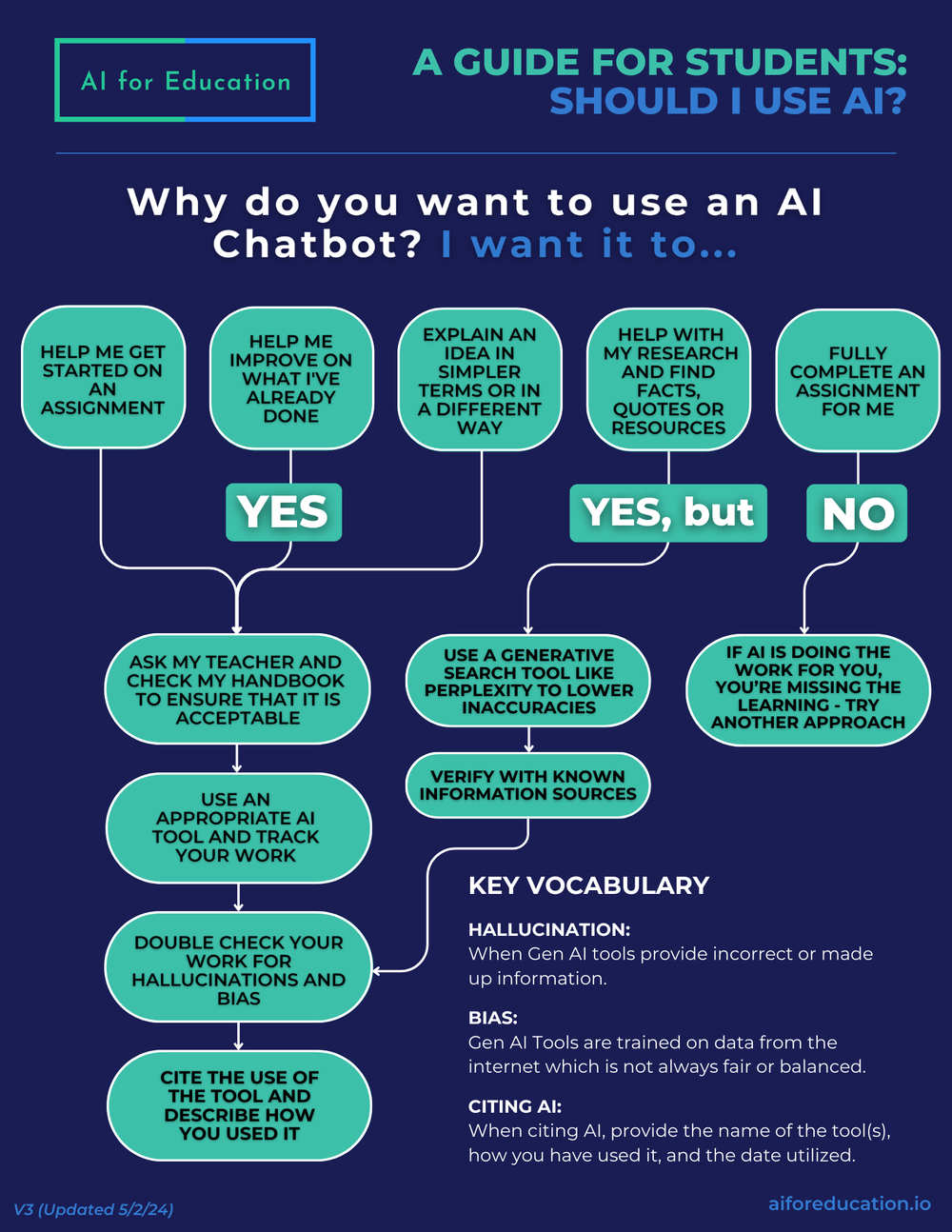AI Literacy: Ethical Use
Check With Your Teacher
PLEASE READ!!! Before you begin any project, be sure to ask your teacher if using an AI chatbot is acceptable to use. Every department may have a different policy around the use of it in their course. If the answer is YES, refer to the flow chart below to assist you with the correct path based on the criteria your teacher has laid out. Work through subsequent tabs above for help on how to develop a prompt and finally, how to cite. If the answer is NO, you may not use AI to assist you with your assignment.
Should I Use AI?
Responsible Use
Ethical Concerns Explained
Understand AI's Role as a Tool, not a Source
-
Use AI to assist, not replace: AI can help students organize ideas, summarize texts, or find sources, but students should still critically engage with the material and form their own conclusions.
-
Cite AI where relevant: If an AI tool directly contributes to the work (e.g., generating summaries or suggesting ideas), students should acknowledge its use.
Avoid Plagiarism
-
Do original work: AI can help with research, but copying text generated by AI without attribution is considered plagiarism. Students must ensure that the final work is their own.
-
Properly paraphrase and reference: If AI provides summaries or rewrites of existing texts, students should ensure that these outputs are properly cited or used as inspiration, not copied verbatim.
Critically Assess Information
-
Verify AI-generated content: AI can sometimes provide inaccurate or biased information. Students should cross-check facts and use multiple sources to ensure the reliability of their research.
-
Use authoritative sources: AI tools may not always prioritize the most credible or peer-reviewed materials, so students should use AI as a starting point and rely on established sources for deeper research.
Avoid Bias and Misinformation
-
Be aware of potential bias: AI models are trained on vast datasets that may contain biases. Students should be mindful of potential misrepresentations or stereotypes in AI-generated content and avoid perpetuating them in their work.
-
Promote critical thinking: Instead of accepting AI-generated answers at face value, students should engage in critical analysis and discussion of the information provided.
Respect Privacy
-
Avoid sharing personal or sensitive data: When using AI tools, especially online, students should not input personal or confidential information to ensure they comply with data privacy standards.
Transparency in Usage
-
Disclose AI assistance: If AI tools played a significant role in the research process, students should be transparent about how they used the tools. This promotes honesty and clarity in academic work.


